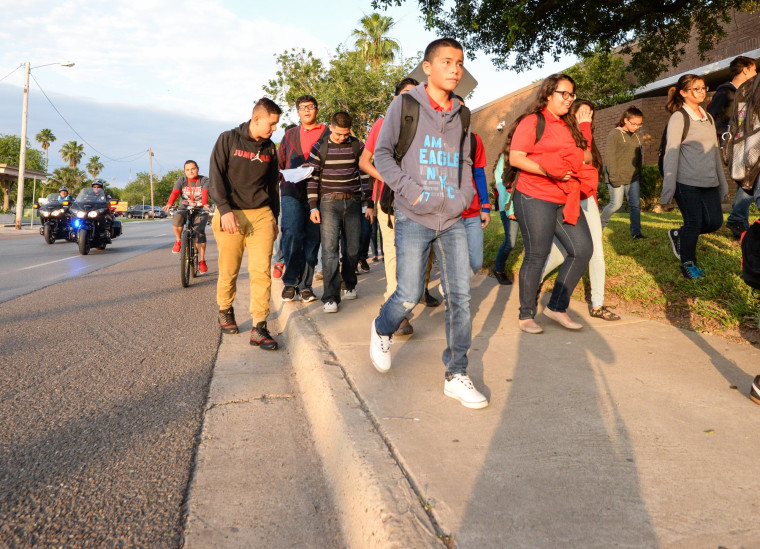The nation’s leading Latino civil rights organization criticized a Texas Supreme Court decision Friday that left in place the way the states’ schools are funded.
The 9-0 ruling from the all-Republican court was a surprise defeat for the 600-plus school districts that waged more than four years of costly legal battles, The Associated Press reported.
The districts had hoped judges would find the financing system unconstitutional and force the Republican-controlled Legislature to fork over more funding.
Instead the court left in place a system that it acknowledged was “failing the kids who are most at risk,” and ignored an achievement gap for economic disadvantaged and English Language Learner students “that is not only lingering but growing larger as each year passes,” said Marisa Bono, lead counsel in the case for the Mexican American Legal Defense and Educational Fund.
Texas’ approximately 5 million school students are majority minority, with more than half being Hispanic and about 13 percent African American.
RELATED: How Many Latino Students Are Enrolled in Selective Institutions?
“When I read this opinion the first though that comes into my head is that the Texas Supreme Court has abandoned its role to protect Texas children,” Bono said.
Previous court rulings have helped bring about reforms to the state’s education system she said. But in this case, the court abandoned the test it has used in the past to determine the constitutionality of the system, refused to engage in the facts of the case and “created a new standard of deference to the Legislature that we’ve never before seen in these cases.”
Texas Gov. Greg Abbott, however, issued a statement hailing the decision as a victory for Texas taxpayers and the state’s constitution.
He said the decision recognizes “that courts do not have the authority to micromanage the state’s school finance system.”
Bono said two thirds of the state’s economically disadvantaged children, millions of children, had proficient scores on the state mandated test
“Anyone whose looking at that and saying what we have on our hands is a success is burying their head in sand and not paying attention to reality,” Bono said.
RELATED: 2016 Latino State of the Union: What Affects Latinos Today
The court’s decision reverses a lower court’s ruling that spending on school districts was inadequate and unfairly distributed among wealthy and poor areas because of $5.4 billion in classroom cuts approved by state lawmakers in 2011. The Texas constitution mandates a fair and efficient system providing a “general diffusion of knowledge.”
Rey Villarreal, superintendent of La Feria Independent School District, said more than 80 percent of students in his district are economically disadvantaged and the district's taxpayers are now paying the maximum tax rate allowed by the state.
“We are doing our part, but we simply cannot keep up with what’s being demanded,” Villarreal told reporters in a conference call Friday.
“We need more funding to keep up, especially to teach" English Language Learners, of which there are high numbers in the district that is in Texas’ Rio Grande Valley in South Texas. The Rio Grande Valley is overwhelmingly Latino.
Dr. Albert Cortez, an expert witness for the school districts MALDEF represented, said it was noted in trial that more than 200 districts are taxing at the maximum of $1.17 per $100 of assessed property value.
“Those districts are going to be legally restricted … There are several hundred other districts that are close to the max level and we may see as a result of this decision, if the Legislature doesn’t do anything, … you’ll see tax rates rise in hundreds of school districts around the state,” Cortez said.
The school funding fight will move to the Legislature, which meets in Texas every two years and returns next year.
Villarreal said the unequal funding impacts the school largely in providing remedial lessons and tutorial help to students who need them.
“We just don’t have enough resources to take care of their needs,” Villarreal said.
This story includes material from The Associated Press.

